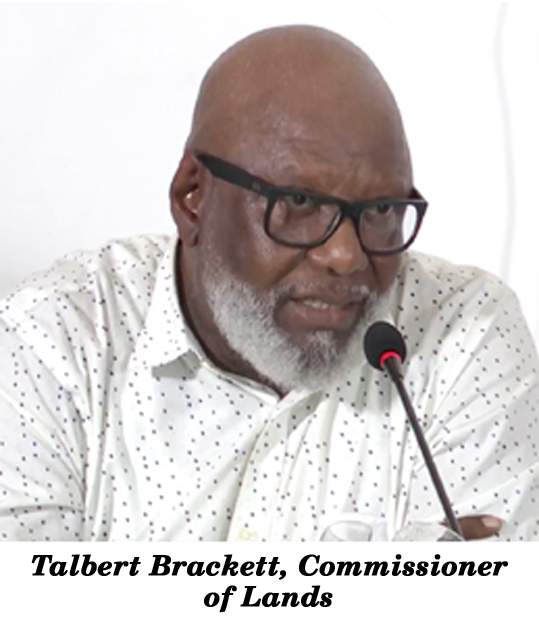Photo: Hon. Kevin Bernard, Minister of Health and Wellness
The Ministry of Health and Wellness stands by the guidance of its technocrats who recommended a new location for the University of Belize Teaching Hospital, citing ease of access as the primary justification
by Marco Lopez
BELIZE CITY, Mon. Aug. 26, 2024
In a press conference today, the Government of Belize cited a lack of access and infrastructure as the major reasons driving the decision to not construct the new university hospital on the lands offered by the University of Belize. Since news broke on the government’s decision to purchase an alternate land costing almost 10 times the original price paid by the private landowner, the public and civil society have been clamoring for answers.
Minister of Health and Wellness (MOHW), Hon. Kevin Bernard in today’s rare press conference sought to clear the air following a protest in Belmopan last Friday, August 23. The original agreement made between the Government of Belize and the Saudi Fund for Development – who provided the US$45 million loan for construction – states that the construction was to be done on land to be donated from UB.
However, following technical assessments, and site visits by the MOHW working group, it was determined that construction at the originally proposed location would limit access to emergency care, among other issues.
The property in question, according to the head table, is also a flood-prone area, with a creek running through the property. Besides this, the Belize Water Services determined that it would cost upward of $ 2 million to install the necessary infrastructure for access to water services.
In essence, Bernard said, it boiled down to the location. Getting to and from the hospital, if built at UB’s proposed location, would put an additional 6 miles on the commute of employees and patients, he said.
According to the minister, both the Ministry of Natural Resources and the Ministry of Health and Wellness were tasked with identifying a new location. The government ultimately settled on two parcels on the roadside that are unencumbered and easily accessible, Bernard said.
The two parcels, owned by an Asian couple, Kenny Zheng and Annie Zhu from San Andres, Corozal Town, were acquired for $610,000 in 2018.

Lands Commissioner, Talbert Brackett, said the Ministry of Natural Resources, in its valuation of the land, appraised its value at $6.2 million.
Brackett went at length to explain how the property cost reached the purchase price paid out by the government of $6.9 million. He shared that the two parcels had been sub-divided, and as such he was forced to use a residual value method of appraising the property. The value of each parcel within the two subdivisions was placed at $116,000, a conservative value according to Brackett, who compared that price with other lot values in the area.
He then explained that the Gross Development Value was determined by multiplying the value ($116K) by the number of parcels in the subdivision. They then subtracted the cost of roads, surveys, and any other development before arriving at the appraised figure, Brackett said.
This was how the government reached $6.2 million, as mentioned; however, the landowners did their own appraisal which placed the lands at $9.3 million.
“The Ministry of Natural Resources valuation was $6.2 million while the owner valuation was for $9.3 million dollars, ultimately the owner agreed to 6.9 million,” Minister Bernard told reporters. He shared that this payment was made in three tranches, which were made to the owner over the past three months.
As far as the environmental conditions of the new location for the hospital, which some suggest may present a hazard due to a sewage treatment pond in the vicinity, both the ministry and technical personnel from Belize Water Services said that the plant presents no adverse impact on public health due to its proximity with the hospital.
Complaints of stench enveloping the area were downplayed by both the BWS and MOHW, with suggestions even being made that other facilities in the area may be causing the stench.

As far as mitigating against potential flooding and leaks that could possibly inundate and taint the entire area, Sanjay Keshwani, Chief Operations Officer of BWS, shared he is confident that geofabrics and a layer of clay will prevent leakage, while floodgates are designed in the treatment facility in case water levels become threatening.
The technical report that led to this decision to move the university hospital from the original location was presented in a Cabinet paper, and as such is confidential information not accessible to the public.

